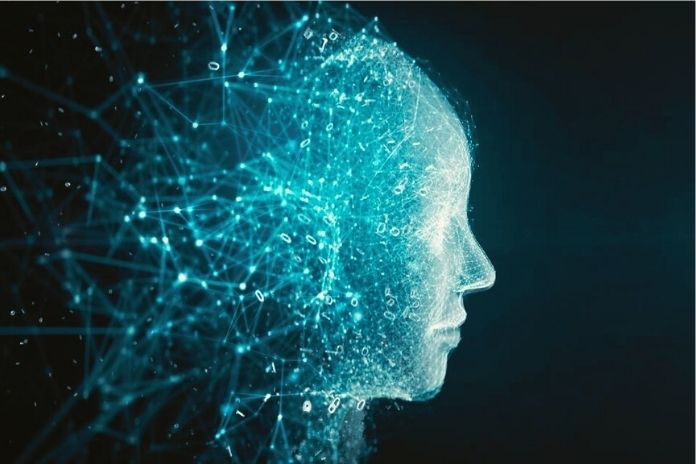It is in household appliances, cars, & smartphones: artificial intelligence. It has a decisive advantage over humans: remembers everything. But scientists now realize that if AI is to progress, we have to teach it to forget.
In which side pocket were the tickets for the concert? Where are the car keys? And what was the name of this actress? Forgetting is human – and mostly, it gets on your nerves. But forgetting also has advantages.
Artificial Intelligence: A Human Is Superior To An AI – Because He Forgets
On the one hand, we create space for new information. On the other hand, it helps us to understand the world better. By separating irrelevant information from important details, our brain allows us to access this knowledge in new situations and react accordingly quickly.
Of course, what is important or unimportant cannot be generalised. Some people are particularly good at remembering details. On the other hand, others remember things better when they are repeated. For others, however, information is more memorable when it is contradictory.
Emotions associated with an event also play a role in remembering and forgetting. So most of us can probably remember exactly where we were on September 11, 2001, when the World Trade Centre collapsed in New York. But we have probably completely forgotten September 10, 2001.
So forgetting is a complex process, and that’s why many say: How the human brain forgets makes us superior to artificial intelligence. Yes, AIs have an elephant memory and can store masses of data. But forgot information? That’s still a big challenge. But why is that important at all?
Should Children’s Data Be Deleted?
One of the most important achievements of the new General Data Protection Regulation – GDPR for short – is the “right to be forgotten.”
This “digital eraser” is intended to protect our privacy and ensure that our data does not linger around on the Internet forever and fall into unauthorised hands. The problem with this is that a lot of our data is fed to AIs. The movies that Netflix recommends for you? The songs that Spotify selects especially for you? Behind all these recommendations are smart algorithms that have learned what you like.
This is called “personalization” and “individualization” in marketing jargon” and is sold as a great advantage. While it’s also true that all of this improves your user experience, that’s very short-term. Because what happens if we want an AI to forget our personal information?
What happens to the data that language assistants are already collecting from our children? Should these be automatically forgotten when they come of age? Or just part of it? What about medical data? And what should an AI do with a person’s information when they die?
These are important questions that have hardly been discussed in broad masses so far. It would be high time. It can also be dangerous if an AI does not forget data. For example, in one study, scientists showed how an AI could be “tortured” into revealing highly sensitive information.
One thing is clear: the more information artificial intelligence stores, the faster we have to think about what should happen to it in the long term. Of course, ethical, legal, and data protection aspects must also be considered. But the technical question also arises: How exactly should AIs forget information?
How Do You Teach A Robot To Forget?
Scientists are currently working on various models to teach AIs to forget. What we normally do on the computer – delete everything – doesn’t seem to make much sense. Let’s say an AI has learned to take care of seniors. Then you might want the AI to forget personal information after a certain time, but not the fundamental knowledge of senior care.
Because that would mean a lot of work, time and knowledge would be lost, which is why researchers call this type of AI forgetting “catastrophic forgetting.” Therefore, experts are currently working on other models so that AIs learn to forget strategically – just like us humans.
The Long Short-Term Memory
One of these models is called Long Short Term Memory Networks (LSTM). LSTM works in three steps:
- Forgetting/Remembering: This is where you teach an AI what old information to keep and what to forget when new information comes in.
- Saving: In the second step, the AI learns which aspects of the new information should be saved.
- Focusing: An AI must focus on information, i.e., understand which stored information is important in which context.
Elastic Weight Consolidation
Another approach is Elastic Weight Consolidation. Here, AIs recognize which neurons or codes are important to carry out a specific task. These are marked as “important” and saved, while less important codes can be deleted.
The Bottleneck Effect
Finally, a few years ago, computer scientist and neuroscientist Naftali Tishby introduced another theory, bottleneck forgetting.
You can imagine it as follows: An AI absorbs a lot of information at the beginning. These are then compressed in a second step. Only the important things for finding the general concepts again are kept. According to Tishby, this compression would be a form with which artificial intelligence could strategically forget information.
It is still completely unclear which method is more effective and in what form AIs will take it up. But experts seem to agree on one thing: if AI continues to advance, we must teach it to forget humanly.
ALSO READ: Data Protection In Online Tracking: Finding The Suitable Middle Ground

